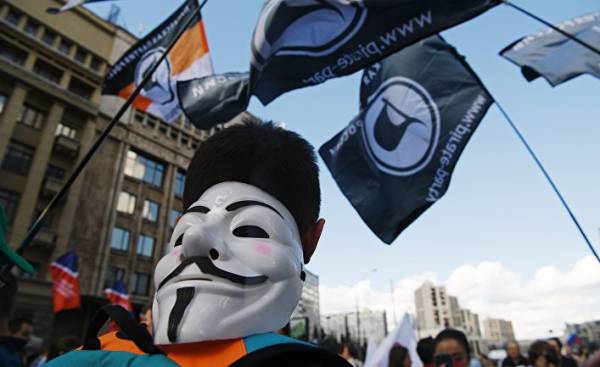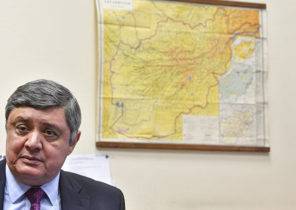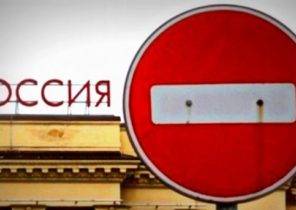
Moscow’s attempts to control the Internet in Russia after a failed campaign by hackers who’ve undermined the system of making the black list of sites deemed unacceptable.
After the re-election of Vladimir Putin in 2012, authorities banned thousands of websites. Some — for the promotion of “social diseases”, the other — for political dissent. Their data contribute to the black list and are forcing providers of Internet services (ISP) to block them.
But in recent weeks, advocates seeking to repel repression, has undermined the system by buying banned sites and adding information about perfectly lawful web pages in their domain names.
The chaos began.
In the past month have ceased to operate ATMs owned by large state-owned banks VTB and Sberbank. Major news sites and social networking services have been blocked, and even Google became unavailable.
“The Kremlin has been unable to control the Internet by technical means. The only thing that partially works is the intimidation of companies and users,” says Andrei Soldatov, author of “Red spider’s web”, about the online surveillance in Russia.
“That intimidation was more effective, a more uncertain and complex rules, so almost all could be done guilty by definition,” he said.
Given that the system of black lists looks vulnerable, there is a fear that the authorities will react to the introduction of more rigid control system that can browse the web users.
They have created a new “white list” of sites that should never be blocked. And last week the Parliament passed a law banning the use of virtual private networks (VPN), used by many to access blocked content. Hundreds of people organized a protest March in Moscow at the weekend to protest against online censorship.
The game of “cat and mouse” on the Internet began five years ago, when the state oversight body, Roskomnadzor, was given broad authority in the field of censorship in the Russian network through amendments to the law designed to “protect children from information harmful to their health and development”.
This included the establishment of a register or blacklist of banned sites that were supposed to block providers of Internet services. Wikipedia, LiveJournal, Russia’s largest social network VK and largest search engine Yandex challenged the law as contrary to the freedom of information.
With its black list of Roskomnadzor began to pursue sites containing child pornography and information about drugs and suicide. But it also blocks the page for “extremist statements” — a slippery term that applies to anything from terrorist groups to liberal news sites of the opposition, as well as information about unauthorized public demonstrations.
In the first two years was blocked more than 50 thousand web sites, about 4 thousand of them for extremism. Sites can be blocked on the basis of a court decision or complaints from public authorities or citizens.
The decision of the Supervisory authority often bordered with politics, for example, when in 2015 were blocked the site of the most famous opposition figure Alexei Navalny Russia for the post that mentioned the possibility of “protest”. Navalny accused the Agency of “political censorship”.
Almost from the beginning, experts have warned that the “black list”, which includes domain names and IP addresses of sites, can become a source of abuse. In late may, the owners of banned sites have found that if they specify the IP address of any other web pages in your DNS information providers automatically block the site.
Other than banks, were blocked VK and Yandex, as well as the sites of the Pro-Kremlin NTV and LifeNews. Even his own website of Roskomnadzor, was unavailable. In the post, “Anus itself block, Roskomnadzor!” 14-year-old programmer claimed that he blocked some “popular sites” through a loophole.
Some of them simply engaged in “trolling” the authorities, while others used the vulnerability “as a weapon in the war against Roskomnadzor,” said one of the participants of the site jellyfish and not revealing his name.
“The task of these people (and I’m one of them) is to complicate the life of anyone who tries to attack freedom of speech and anonymity on the Internet,” he said.
IT consultant Vladislav Smolnikov, who writes about the freedom of the web sites and the policy of the opposition for almost 20 thousand subscribers on your channel in an anonymous messaging service Telegram, published a list of prohibited domain names that were released by their original owners. Within 15 minutes nearly sold out.
“I have demonstrated criminal incompetence of Roskomnadzor, which not only ignored the vulnerability, but not removed from the register of domains that have been released,” he told The Guardian.
Roskomnadzor has accused Zdolnikava and web developer Alexander Litreeva (both activists of the anti-corruption Fund Navalny) in the blocking of innocent sites, and has asked the interior Ministry to open an investigation. After that, both activists fled to Kiev.
The Agency also released a new “white list” of the several thousand websites that cannot be blocked under any circumstances, most of them government page. On 11 July the list was expanded.
Many providers do not have enough equipment and personnel to test a constantly changing IP address and to ensure that the blocked websites remained blocked, and the sites from the white list intact, says Sarkis Darbinyan, a lawyer for the project Roskomsvoboda, who is fighting for free Internet.
More importantly, the methodology of Roskomnadzor concern about the future of Internet freedom in Russia. According to Darbinian, the regulation of the Internet is approaching a “presumption that everything is forbidden”, except what is explicitly permitted.
This topic has become particularly relevant after large-scale unauthorized protests Navalny in Central Moscow in March and June. Many of the participants stated that they were inspired by a viral video on YouTube showing the extravagant estate of Prime Minister Dmitry Medvedev.
The package of amendments known as the law of Spring, which was passed last year and will come into force in 2018, has already sparked controversy. The legislation would require Telecom providers to store information about all user messages from calls, to e-mail for six months.
In addition to complaints about privacy, cost of implementation technology for the storage of such information is estimated at 4.5 trillion rubles (60 billion pounds). Such costs are likely to affect consumers.
Many consider new legislation governing the anonymity and virtual private networks, such as the Telegram, as the next step in the gradual suppression of the Internet by the Kremlin. According to Soldatov, since these services are technologically difficult to block the sites, they will be easy targets for pressure and intimidation if the law is passed as expected.
“This law, like others, subjecting to censorship the Internet, will be applied selectively, predicts Scolnicov, when this is beneficial to the regime.”







